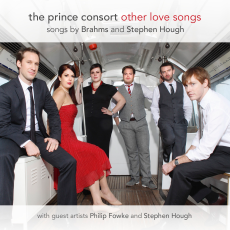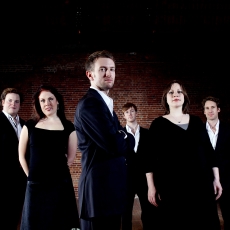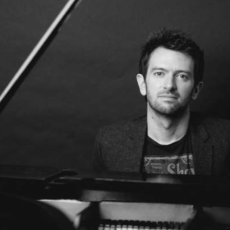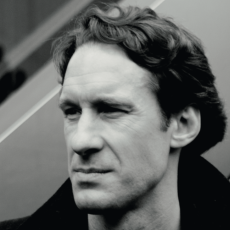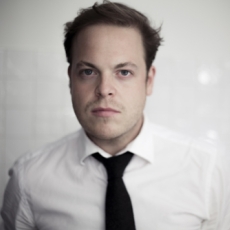The Prince Consort - Other Love Songs - Classical Music Magazine
Saving a recording with a hardback book, having a run-in with a celebrity talent-show judge, Scouse accents in art-song: not the goings-on one associates with your average classical vocal ensemble. But, then again, the Prince Consort is anything but average - its innovative programming and first-class performances mark it out as one of the most distinctive presences on today's concert scene.
The group's memorable 2010 included its debut recording on Linn Records, of songs by Ned Rorem, and well-received recitals at the Wigmore Hall and the Oxford Lieder Festival. To top it off, the Prince Consort was chosen by Linn to represent the company at the 2010 Gramophone Awards ceremony held at London's Dorchester Hotel, at which it was selected as Label of the Year - only for the ensemble's carefully planned warm-up at the hotel to be scuppered when Sharon Osbourne had them silenced because she found their rehearsal too loud.
The consort's next recording, to be released in June, features Brahms' two sets of Liebeslieder-Wälzer, as well as a cycle, Other Love Songs, specially composed for the group by Stephen Hough. However, finding a convenient free day to discuss all of this in the busy lives of the consort's six members wasn't easy: after many e-mails back and forth, I eventually meet pianist and artistic director Alisdair Hogarth and mezzo-soprano Jennifer Johnston, who conveyed profuse apologies from their colleagues.
'Yes, we have to plan our schedules ages in advance to get us in the same place at the same time!' laughs Johnston. 'We try to meet at least monthly, and it's often fortnightly - but it means that arranging things at short notice can be difficult.'
'We always intended the group to be a slow-burner, taking time to develop alongside everyone's individual careers,' says Hogarth. 'And I think the proof of the pudding can been seen in the fact that we're not really doing anything vastly different from what we set out to do, just doing it better.'
Which is...? 'We've always been keen to find new ways of presenting classic repertoire, and also to expose audiences to newer music,' Johnston says. 'Falling levels of music education in schools means that too many children hear only Mozart and Beethoven as examples of "classical music", and we want to show how wide that label actually is. But you can't just fling a whole programme of Andriessen and Berio at people: instead, what we're doing is showing how modern composers have responded to older works.'
Hogarth suggests that this approach is exemplified in the group's newest recording. 'Stephen's cycle is a kind of bridge between the two Brahms sets, although he deliberately avoided both waltzes and conventional depictions of love. But there are Brahmsian allusions: the theme from the last song of the first Liebeslieder set appears in the introduction to the first song of Other Love Songs, and then the themes in Stephen's last song foreshadow the first song of the second Brahms set.'
The recording involved hard work and not a little good fortune, Hogarth adds. 'Way back when, I originally approached Stephen to ask if he would play the Brahms with me. However, he declined, saying that he was taking on fewer chamber-music projects in order to devote more time to composition.'
'This lingered in my mind: once we'd arranged the recording sessions, I got in touch with Stephen again and asked if we could commission him to compose something for us in six weeks: he warned that it would be tight, but hadn't reckoned with being put up in a hotel with no internet while on tour for a fortnight, and so had plenty of time on his hands! He then had one free day in his schedule which coincided with our sessions, and we got all his songs in the can in one day.'
Anecdotes come flooding out about the sessions: Hough encouraged Johnston to let her Liverpudlian roots come to the fore for 'Madam and her Madam', after the composer revealed that he could only imagine the text as delivered by Lily Savage. And the hardback book? Hogarth grins. 'In one of Stephen's more demanding accompaniments, there's a quick glissando which required me to run my thumb through several octaves, and I just couldn't get it. After about 45 minutes of trying, I was in agony, and told the production team that I couldn't carry on; suddenly, someone spotted a large hardback that engineer Philip Hobbs had with him and suggested I use that instead - and it was perfect next take!'
The Prince Consort will be back in the studio soon, taking a fresh look at repertoire for voice and piano trio. Juxtaposing songs by Haydn and Beethoven and works by James MacMillan and Stephen Hough, the disc will feature only the higher voices of the group: soprano Anna Lesse, countertenor Time Mead, and Johnston.
'Being such a flexible ensemble has always been at the heart of what we do,' says Hogarth. 'We're such a close group and know each other's voices and personalities so well that if someone isn't available, the others still work well together. I feel so honoured, because it's so rare to be working so regularly with singers that I love, in repertoire that I love playing.'
'But we couldn't do it without Al,' adds Johnston. 'He knows our voices so well and knows how to put six different personalities together. The consort is a real constant in all of our lives: it brings something to our individual careers, and our work away from the group also enriches what we do as the consort. It's an ideal life.'
